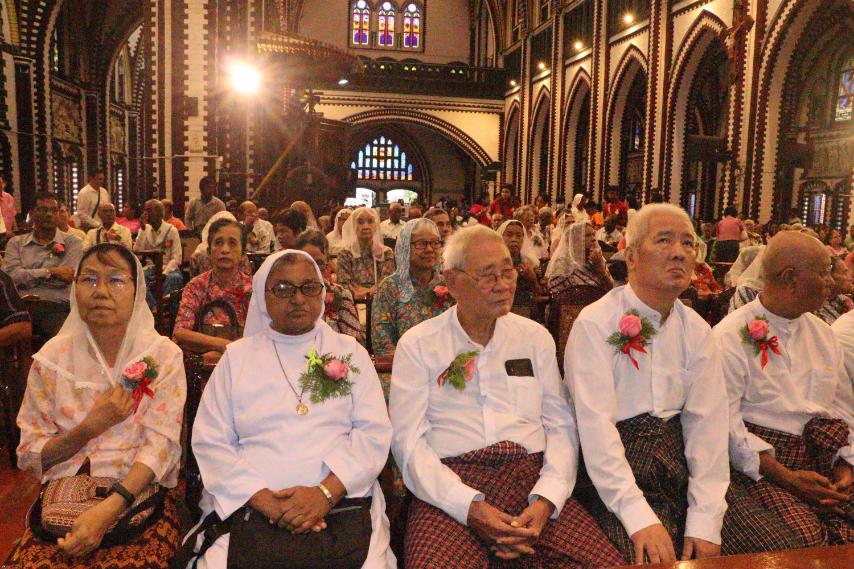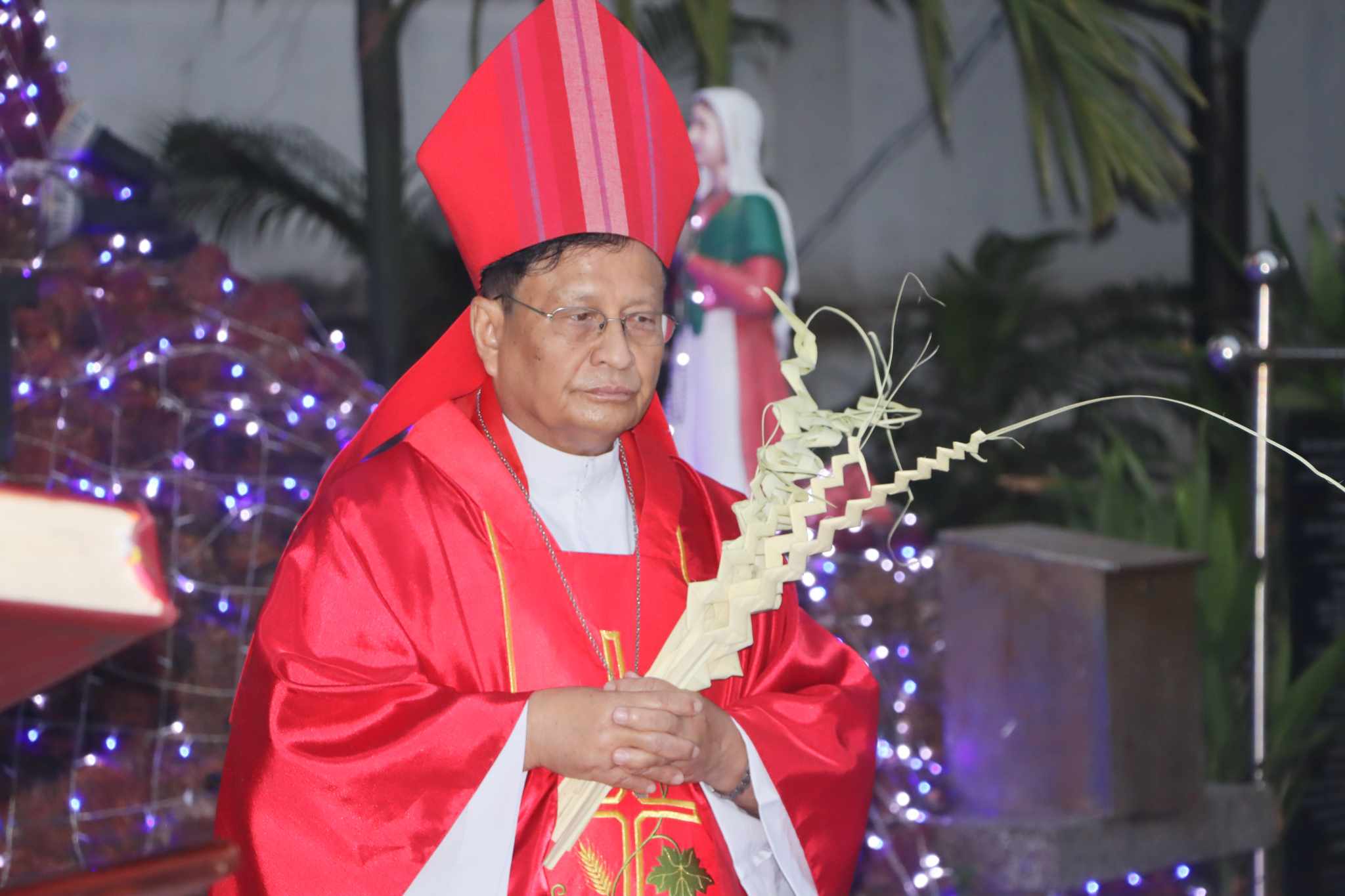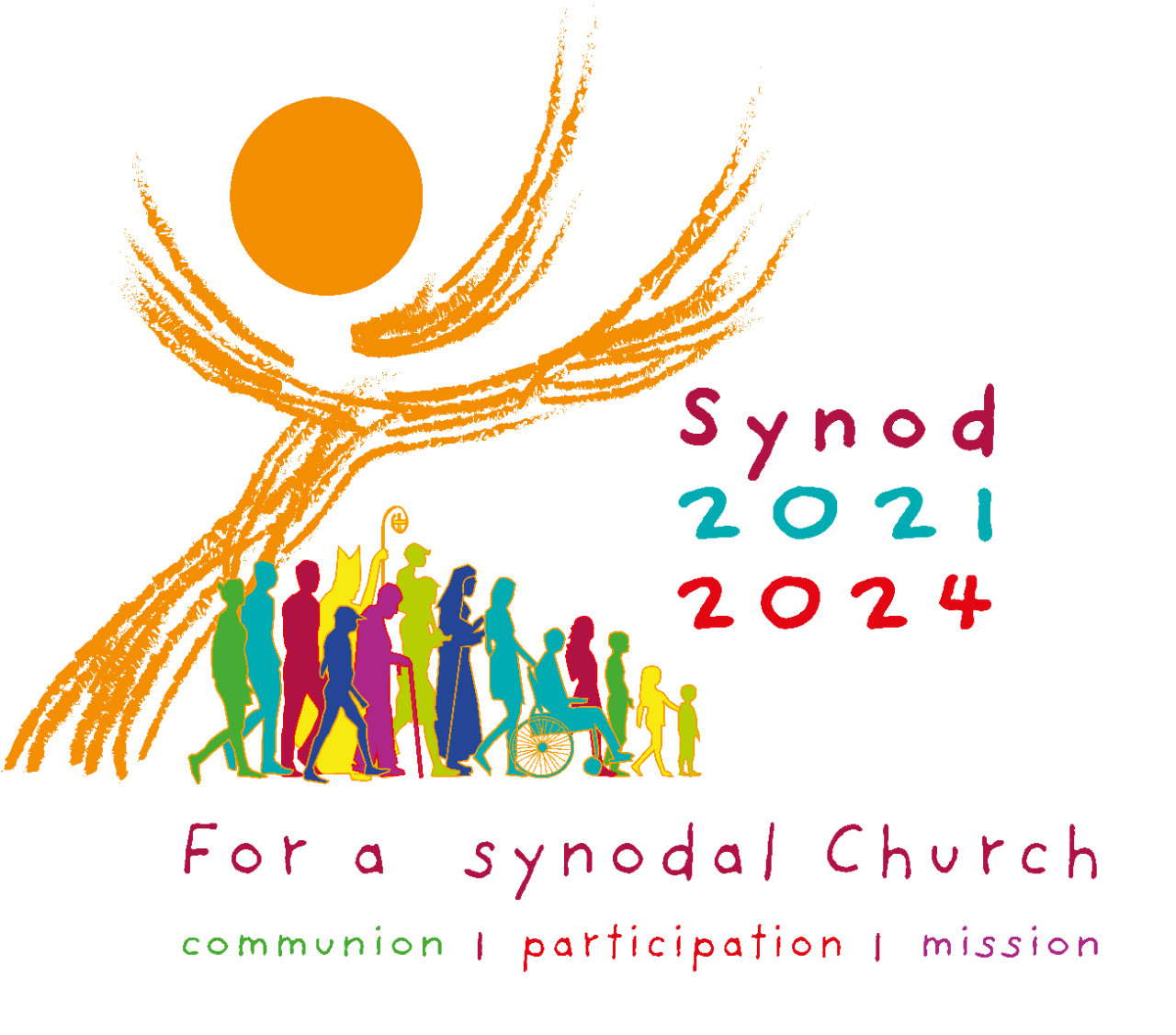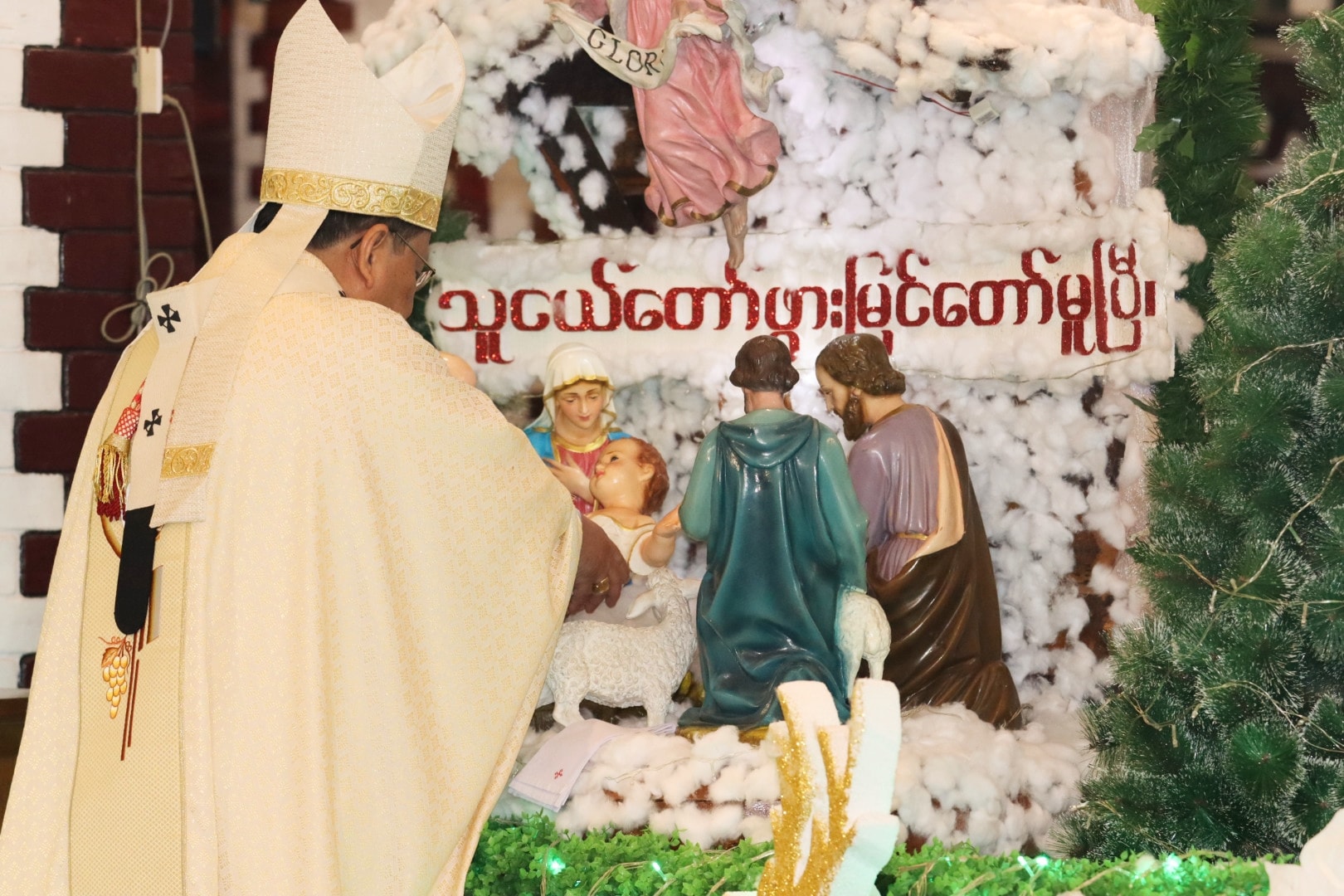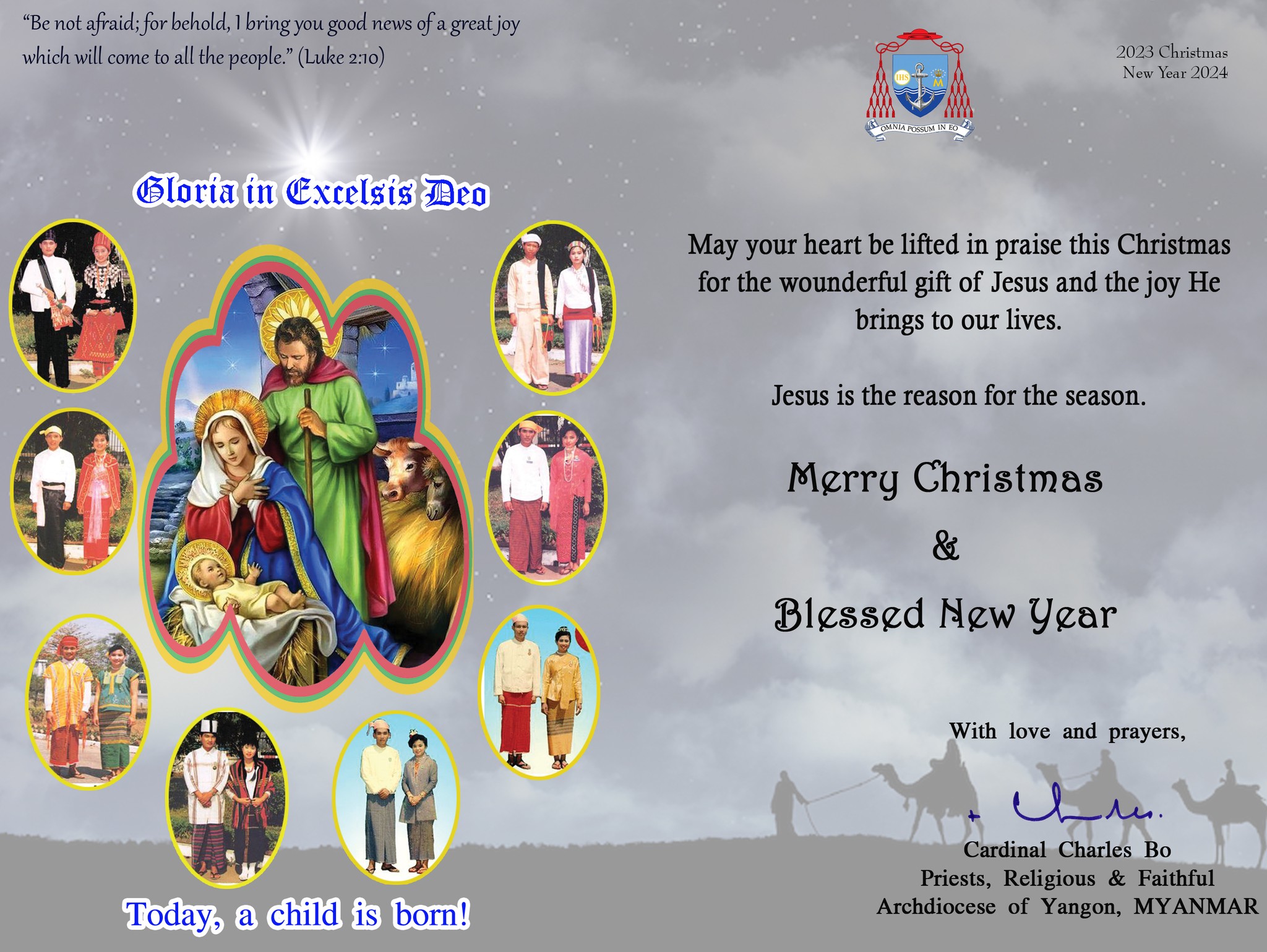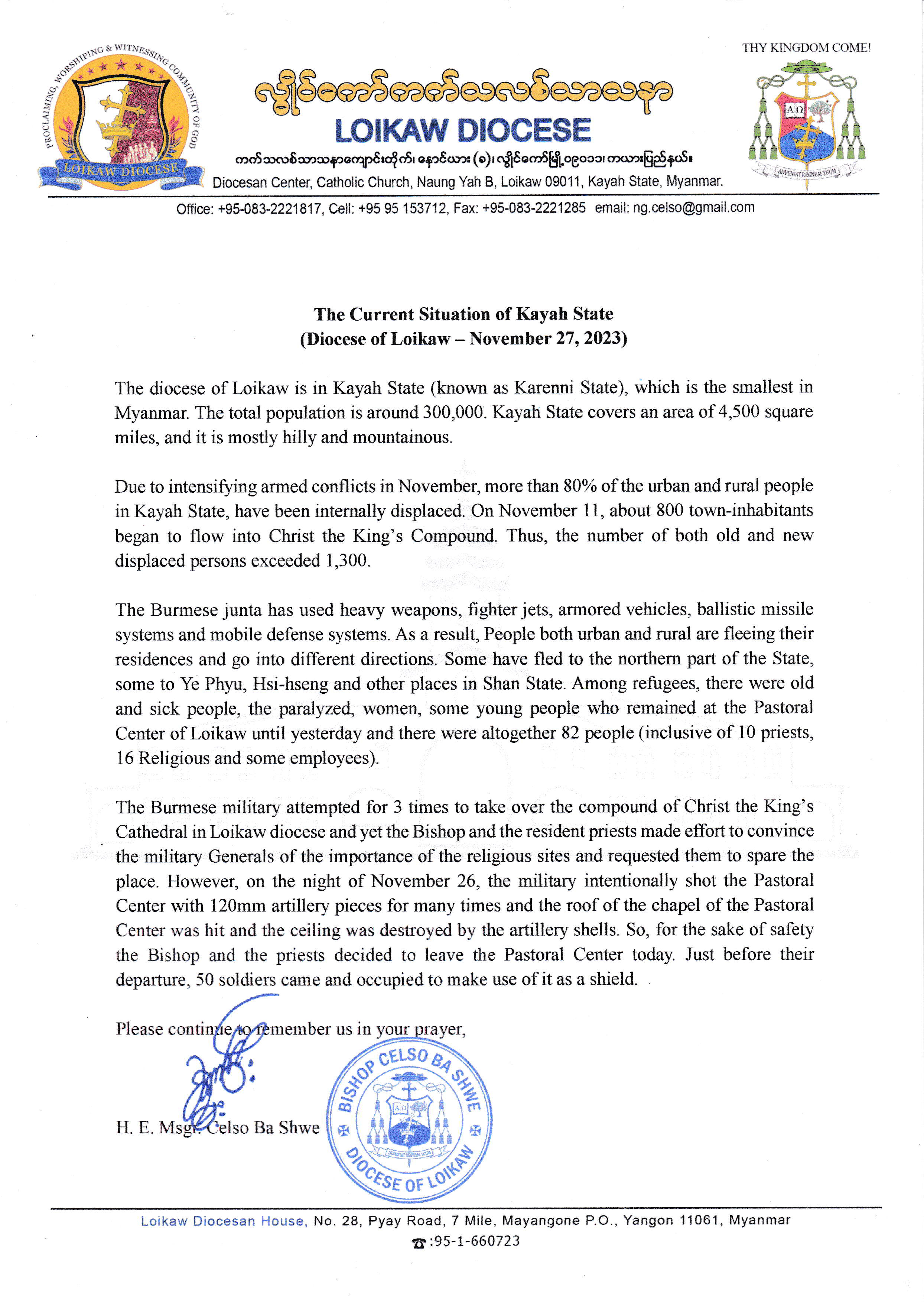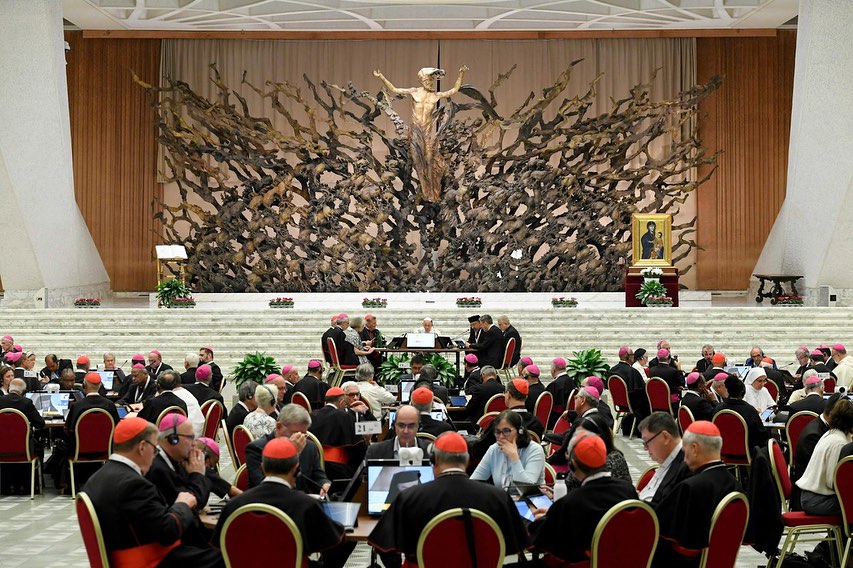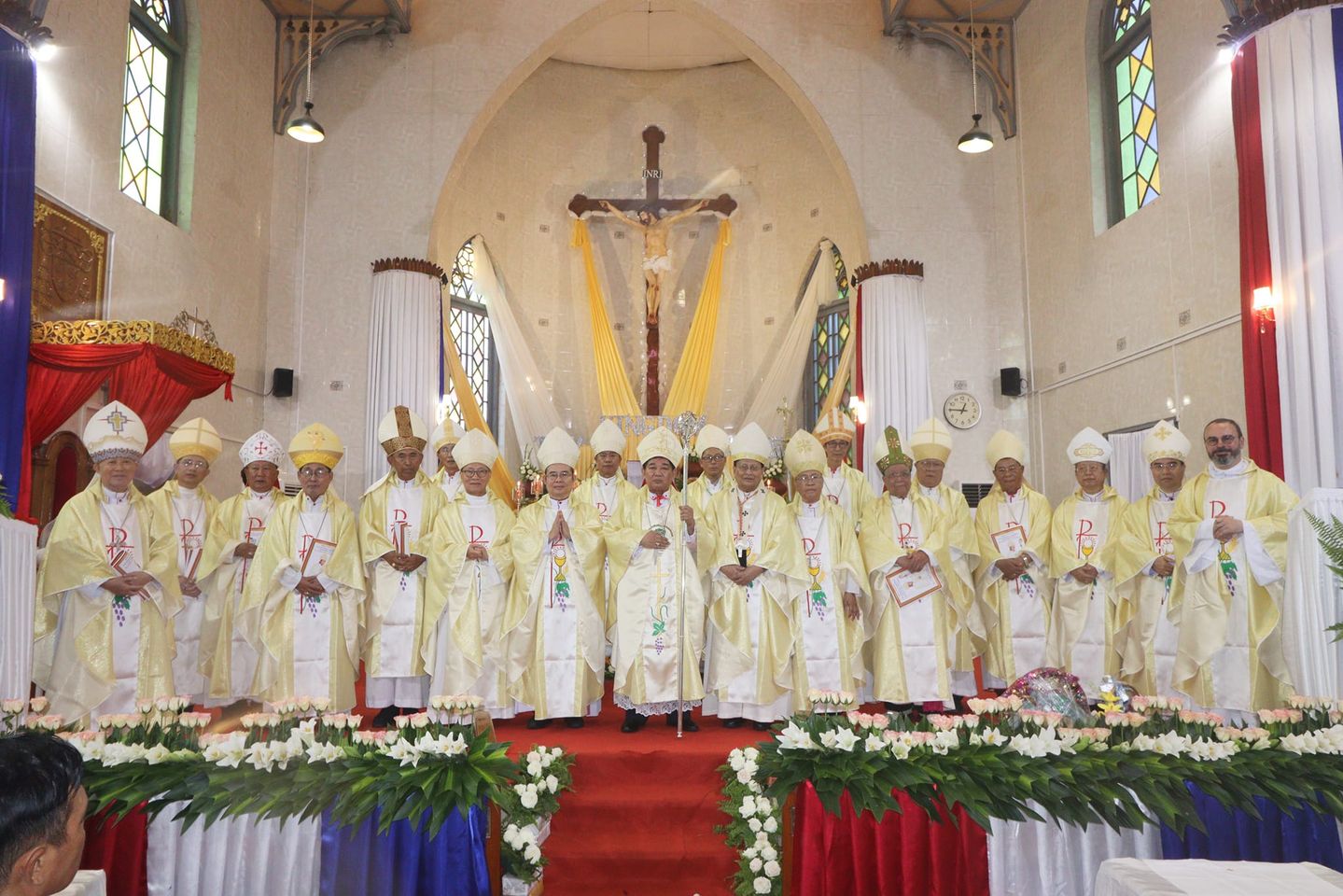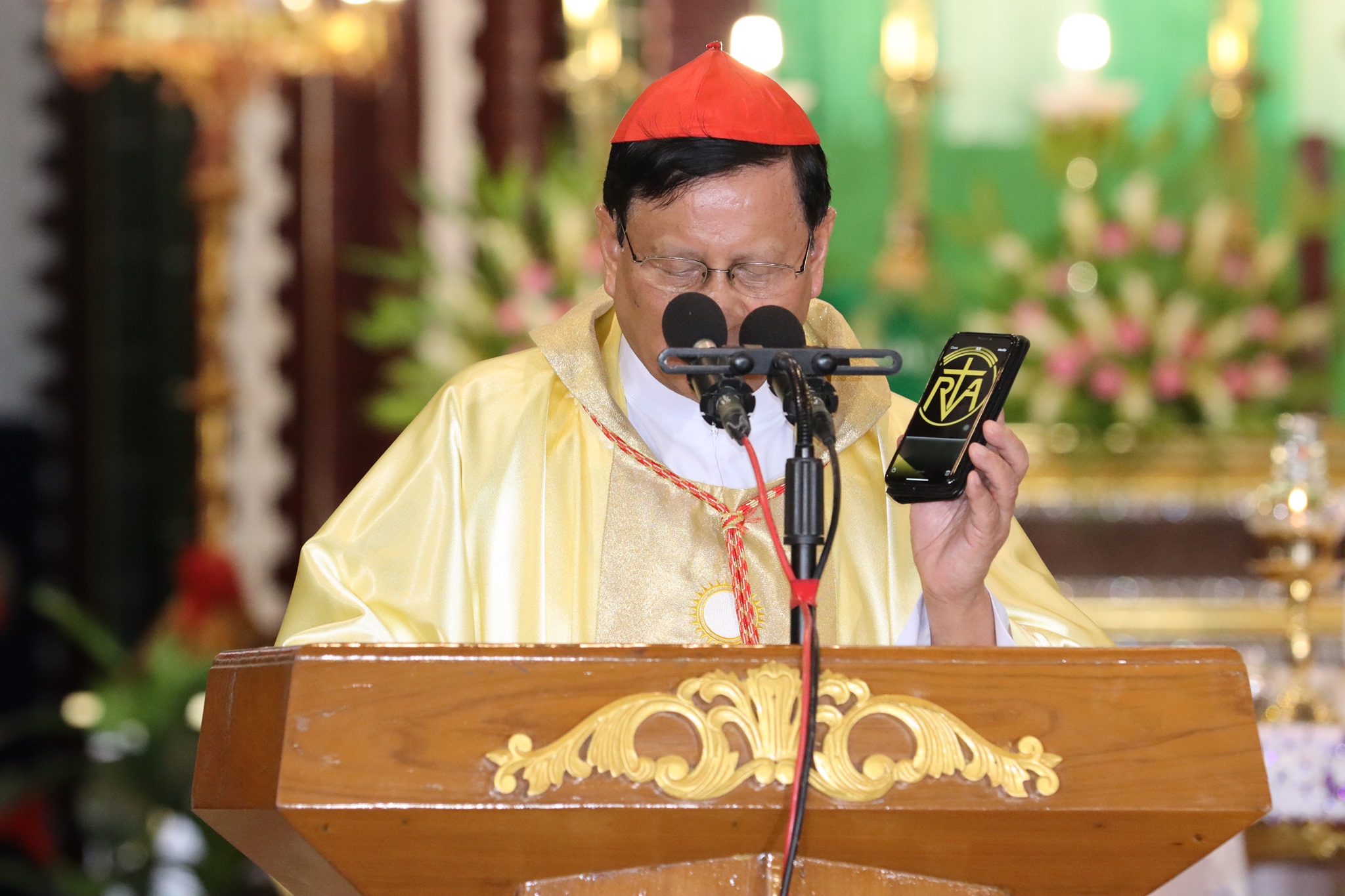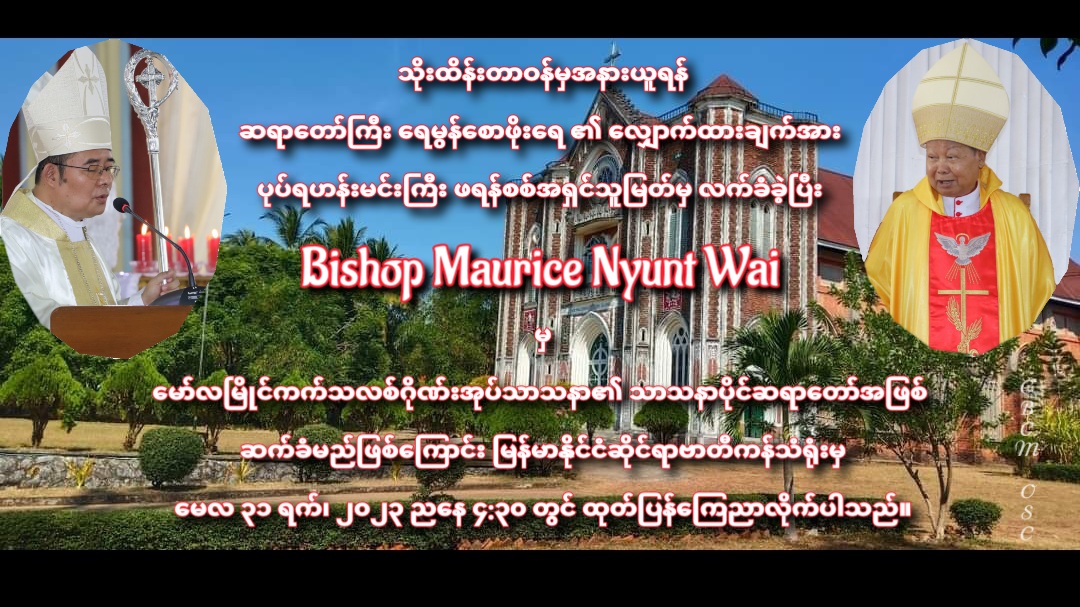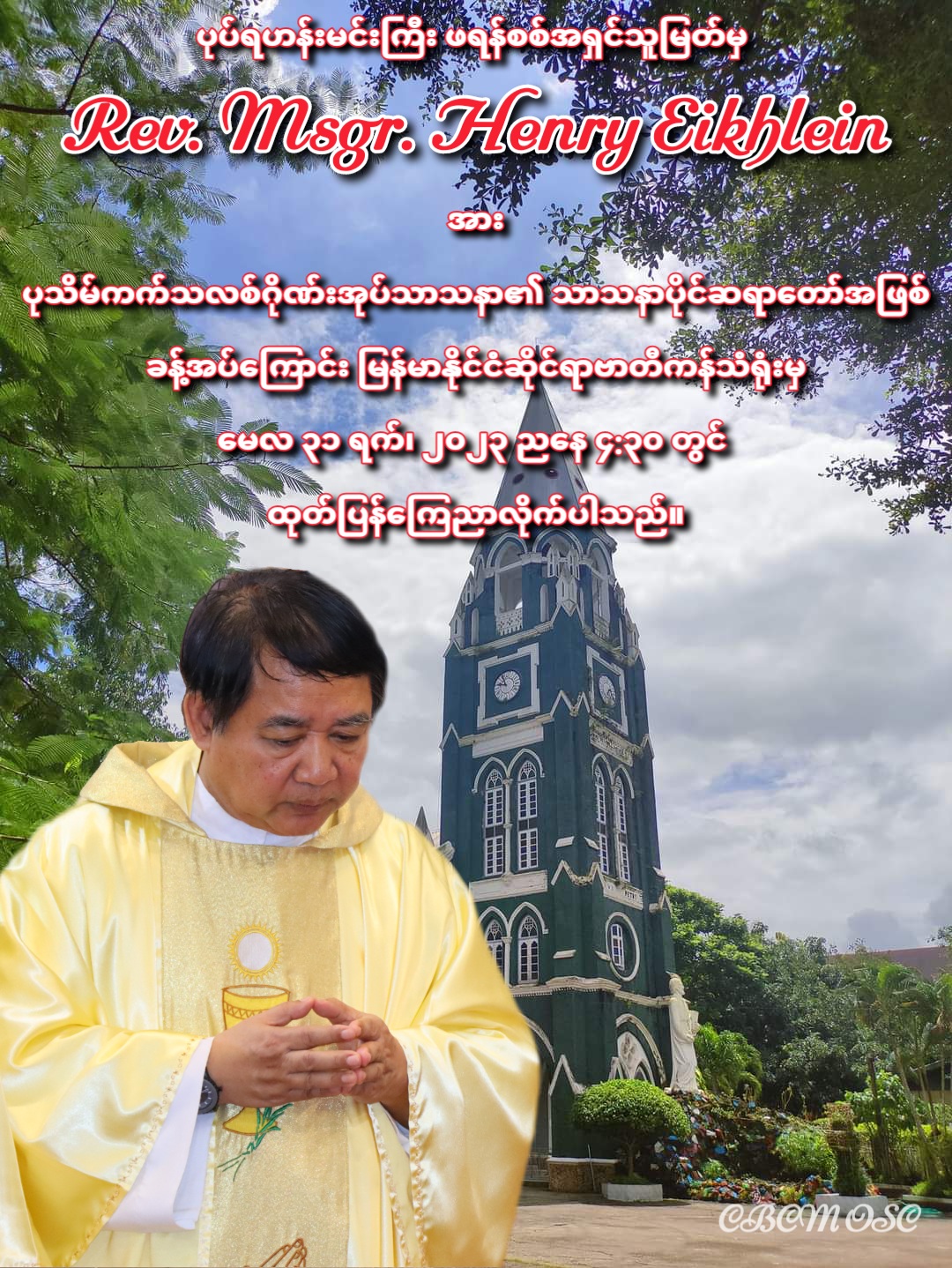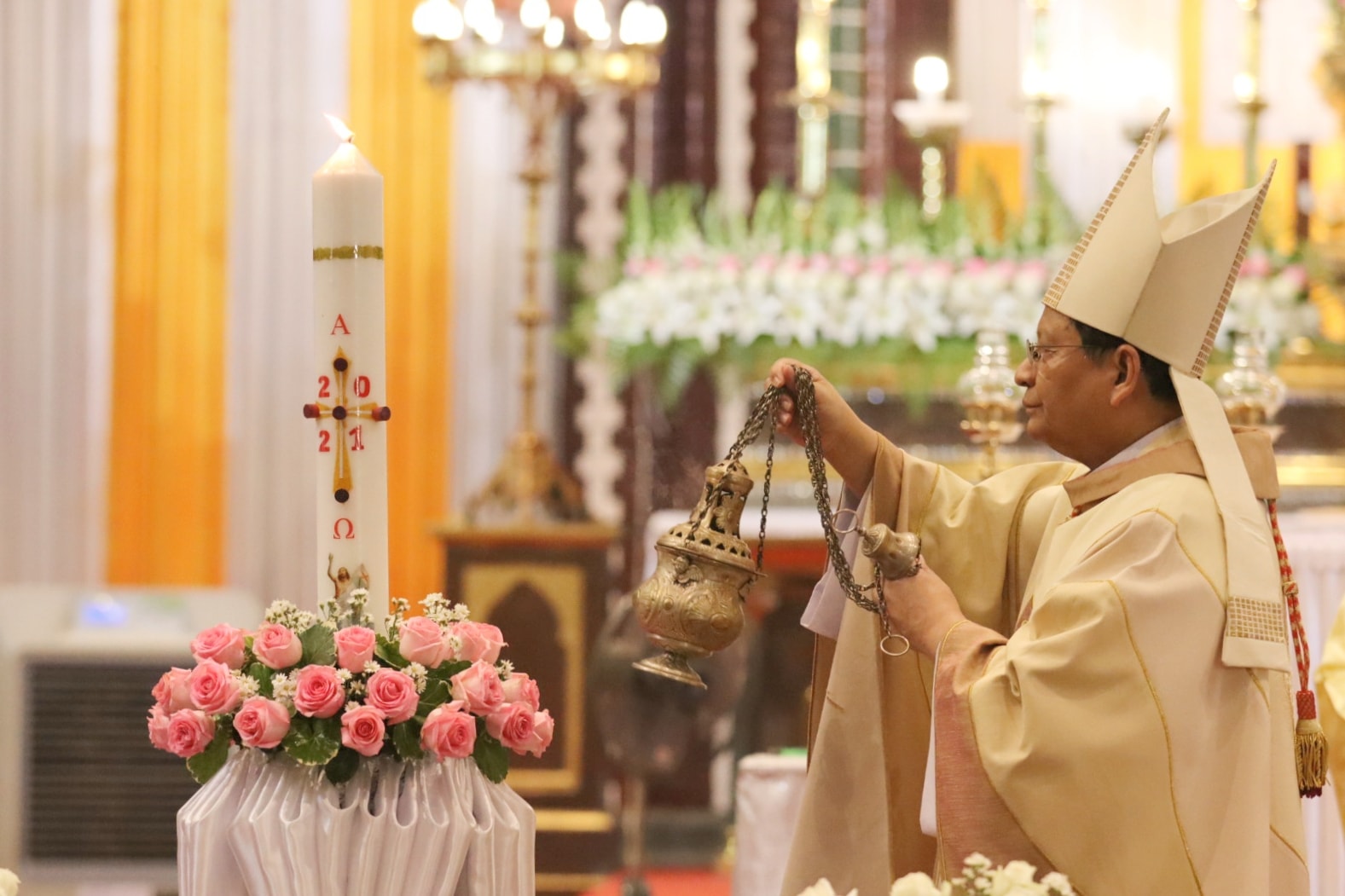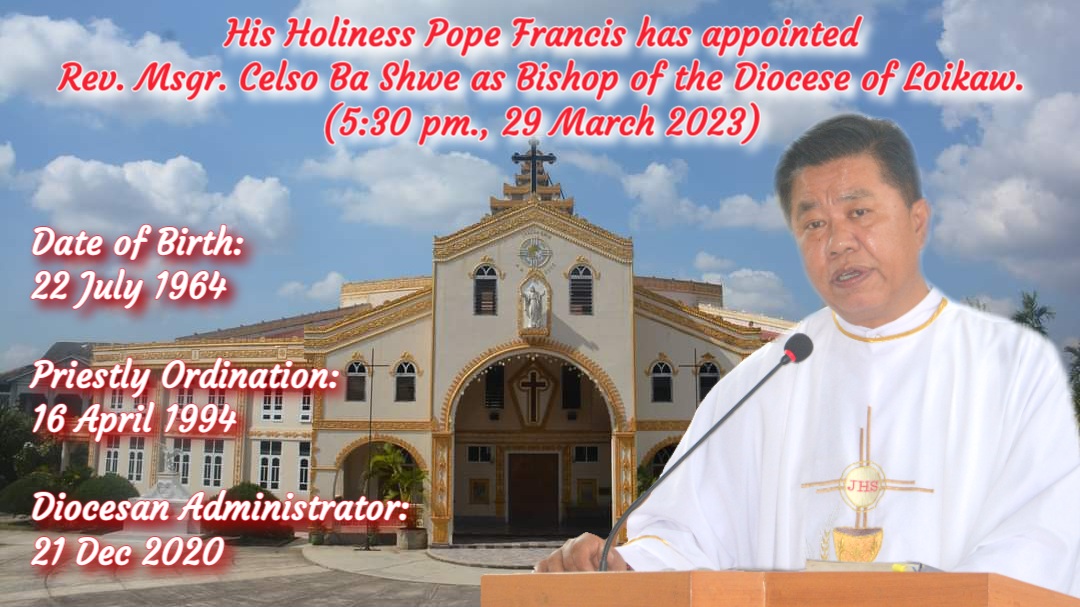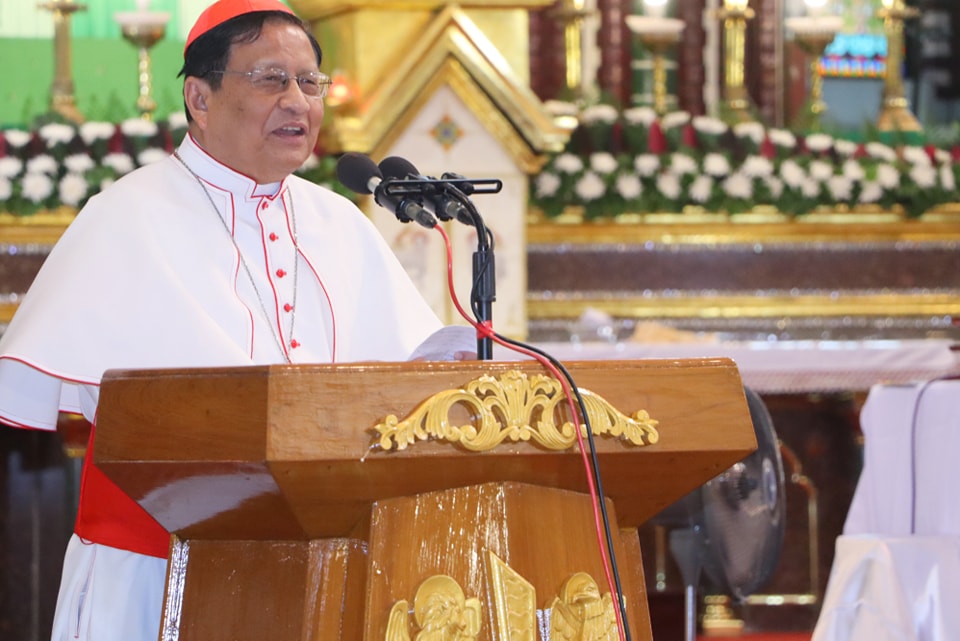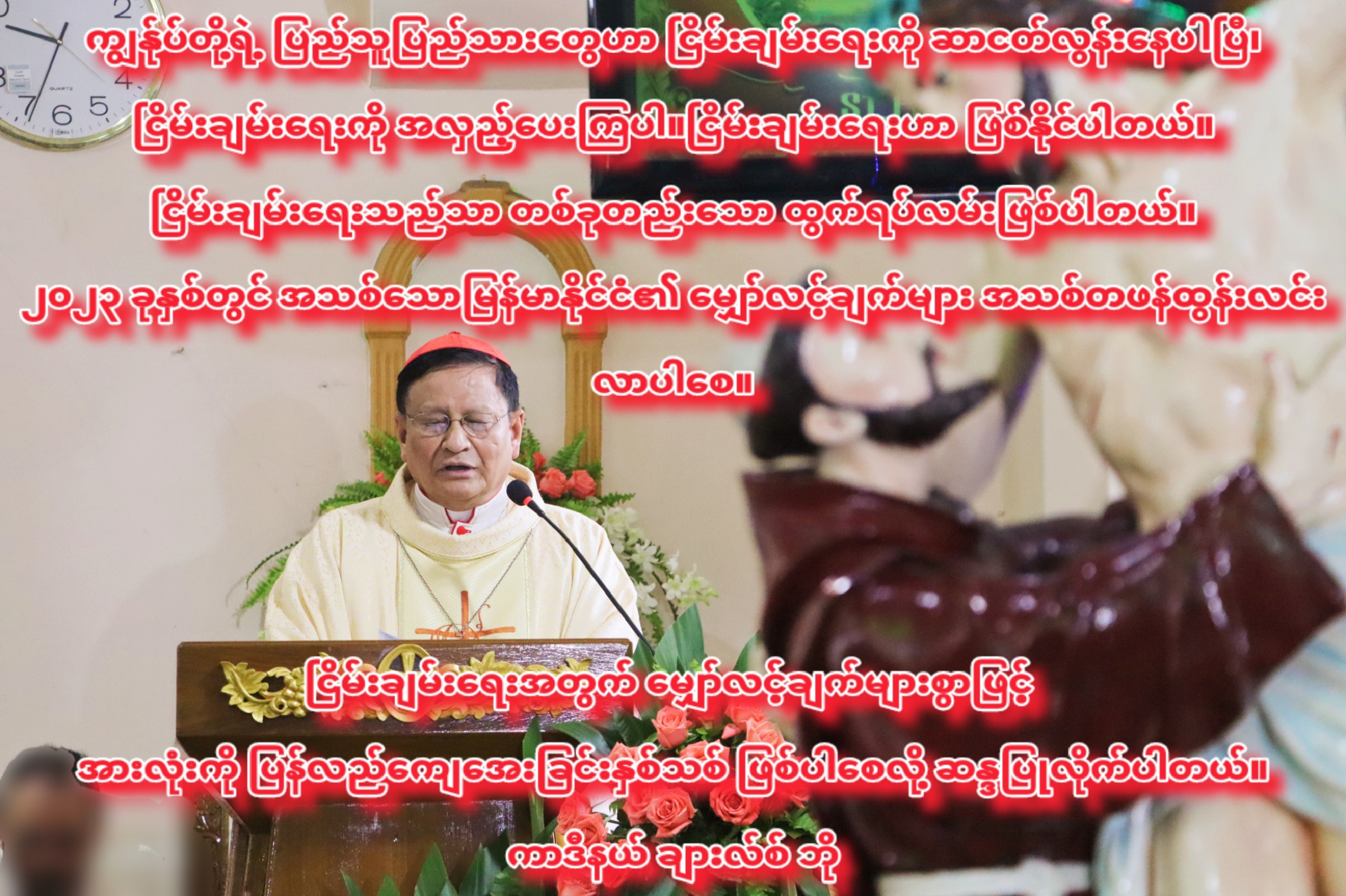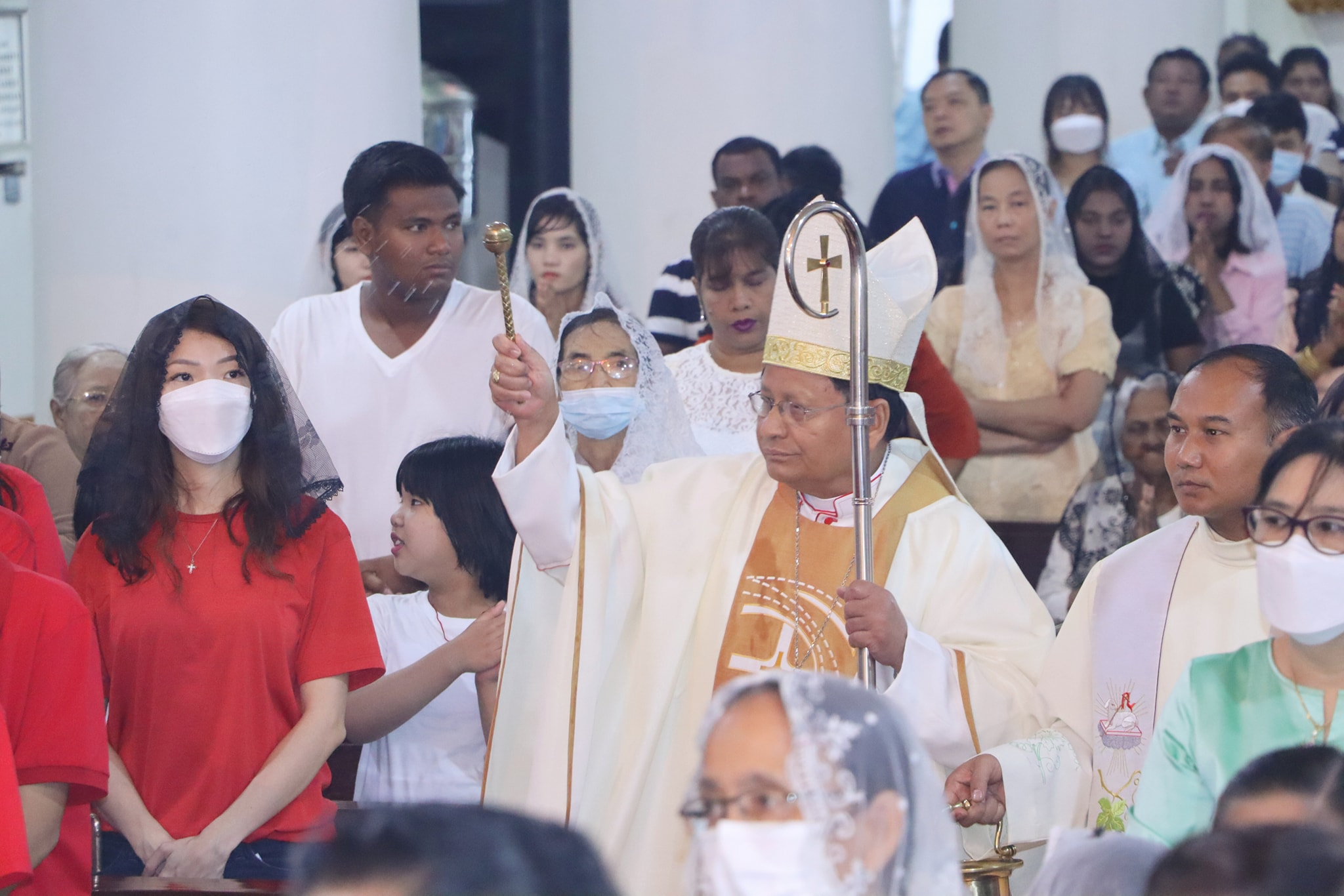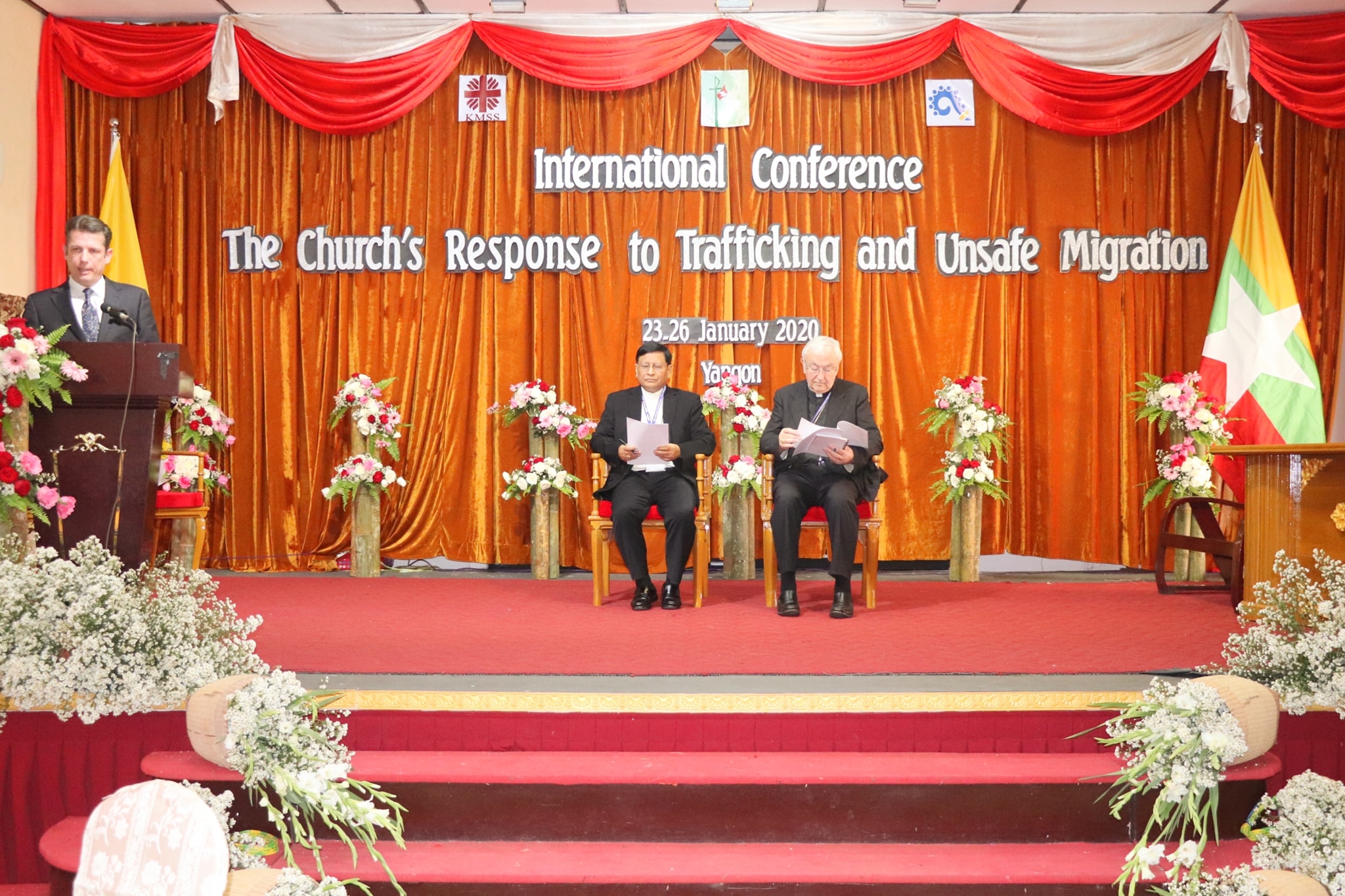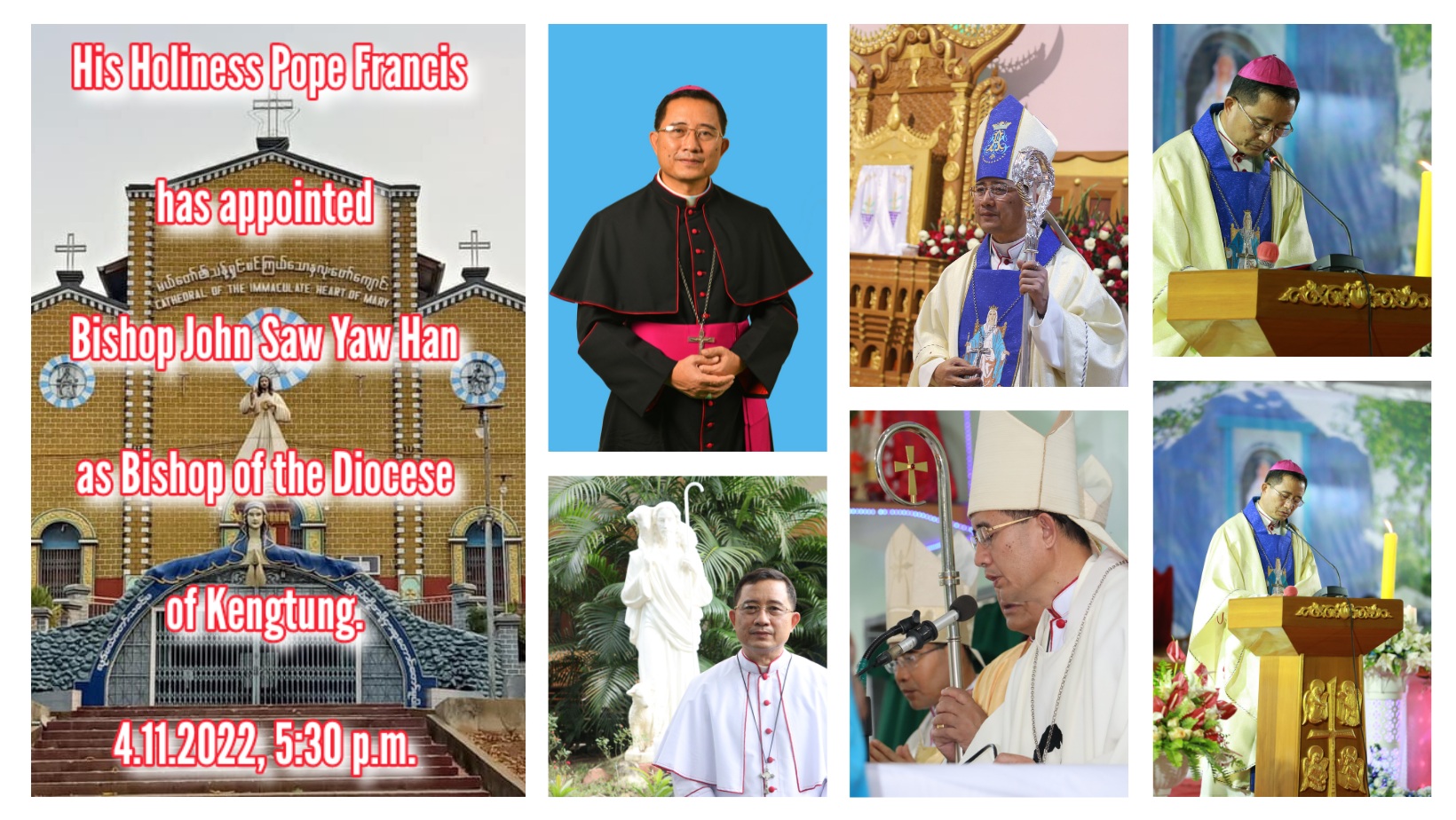A letter from The President of the Federation of Asian Bishops’ Conferences addressed to the Bishops and Churches of Asia
12 – October 2020
Dear Brother Bishops of Asia,
and Dear Sisters and Brothers of the Churches of Asia.
With respect, joy and love I wish you peace. With this letter I wish to encourage you in your reading, reflection and prayer on the most recent Encyclical of Pope Francis, Fratelli Tutti on fraternity and social friendship. In the very first moments of his pontificate, Francis bowed his head in front of the people gathered in St. Peter’s Square and invited them: “Let us always pray for each other. Let us pray for the whole world, that there may be a great fraternity.”
The Church is alive, it must always surprise
This year of 2020 is and has been for many of you, and for your people, a time of chaos, fear and loss. It is heavy for you, it is claustrophobic to be forced to stay at home and to keep your churches closed. Calendars are empty. Donations are drying up. There is increased hunger among our poor. Naturally we fear for the future. Yet Francis urges us not to make superficial responses to this time of crisis. We never stop being on mission. Now is a time to build respect for one another, to live as we wish the world to be in the future. “If the Church is alive, it must always surprise.”
Do not let the joy of the Gospel diminish in your hearts. Do not give way to the culture of indifference. Despite all the pain surrounding us, be aware, he urges us in this encyclical, of the overwhelming, immense, surprising and unmerited gift that we have in “fraternity”. Fraternity, which means care and respect for our sisters and brothers, is the foundation and pathway to peace. Fraternity is solidarity and dialogue; it is true religion. Without fraternity, liberty and equality do not make sense.
More than one pandemic
There is more than one pandemic in the world now, Francis is telling us. COVID-19 only exposes these underlying systemic ailments. Racism, inequity, hate speech, disregard for the poor, the elderly and the unborn, trafficking of women and children - all are with us in pandemic proportions. You are each painfully aware of where the culture of death is present in your dioceses, your local Churches, in your societies. We know that for at least eighteen countries of Asia the death penalty is still legal. We have commerce in weapons in Asia and some of the longest running wars in the world. Millions have no choice but to leave their families and go abroad to find work. These are matters already on our agenda that confront the Gospel message and call for a response from us. Against these we must develop the vaccines of compassion, solidarity and justice.
The Good Samaritan
In Fratelli Tutti Francis leads us in an extended Ignatian meditation on the well known Gospel parable of the Samaritan who was moved with compassion. There is an ancient Jewish understanding that parables are intended to comfort the afflicted and to afflict the comfortable. Christ’s words to the scholar of the law are addressed to us. Francis asks us to put ourselves into this story and imagine ourselves alternatively as one of the religious passers-by, as the victim, even as one of the robbers, perhaps as the scholar of the law, or as the inn keeper who is amazed at the generosity of the rescuer, and finally as the Samaritan. Then we are faced again with the question, ‘who is my neighbour?’ and the inescapable question to our hearts: are we moved by compassion? Love builds bridges. We are moved to affirm that we were made for love.
Inspired by the meditation on the parable, Francis charts a common course for humanity through commitment to peace, the rejection of war and capital punishment, encouragement of forgiveness and reconciliation within societies and care for our common home. When we look with eyes sharpened by this Gospel, we will recognise Christ in every excluded person. Whatever excludes the poorest persons is exposed. We are called to critique the culture of waste and to defend the human rights of people made vulnerable by society: women, children, racial minorities, refugees, the unborn, the aged and many others. Respect for persons and for the common good only grow from true fraternity. In the hunger that our people face daily, we also see inspiring examples of compassion in the sharing of food and the Good Samaritans who volunteer their service to care for others.
Fraternal relationships among religions
It is clear that Francis originally planned to focus this encyclical on the fraternal relationships between religions, exemplified in the spirit of fraternity with which he signed the statement in Abu Dhabi with Grand Imam Ahmad Al-Tayyeb. Yet as he was writing, the world was engulfed in the pandemic. We can be truly grateful that he decided to expand the encyclical’s scope to reflect on the COVID-19 crisis and on the dangers and opportunities it creates. In Asia both of these realities touch our lives and communities intimately and urgently: relationships among religions and the response to the immediate COVID-19 crisis. The Holy Father urges us to look courageously and creatively for opportunities to build, here and now, the world that God desires. He urges us to face up to past mistakes, to heal wounds and to seek and offer forgiveness, recognising that truth is the “inseparable companion of justice and mercy.” The society that will rise again from COVID-19 is a society where fraternity is valued.
Evangelii Gaudium, Laudato sì, Fratelli Tutti – a tryptich:
The three great encyclicals of Pope Francis complement one another. Evangelii Gaudium prays for reconciliation with God. Laudato sì is a cry from the heart that calls for reconciliation with creation. Fratelli Tutti pleads for reconciliation, dialogue and solidarity among all humanity as sisters and brothers. Pope Francis wants us to be aware that God’s presence permeates the world, inspiring persons of all cultures and religions to promote reconciliation and peace. As servants of Christ’s mission today we are invited to assist him as he sets right our relationships with God, with creation and with other human beings.
An open world - an open heart
Where the lack of fraternity creates selfishness, hostility and a closed world, the Gospel calls for an open world and open hearts. There are no ‘others’, no ‘them,’ there is only ‘us’. We want, with God and in God, an open world, a world without walls, without borders, without people rejected, without strangers. To achieve an open world, we must have open hearts. To achieve universal fraternity, our social ethic will be a call to solidarity, encounter, and gratuitousness. Only a better kind of politics will create an open world with an open heart: politics for the common and universal good; politics for and with the people; politics that seeks human dignity; politics of women and men who practice political love; politics that integrates the economy and the social and cultural fabric into a consistent, life-giving human project.
Asian realities are echoed in Fratelli Tutti
Our Asian realities are echoed in the urgent message of Fratelli Tutti. Asia is at the crossroads. The path we take will decide the inheritance we leave to our next generation. Will it be wasted or saved? Will Asia choose individual greed or commit to the common good? Much depends on how we rebuild society after coronavirus. Many governments in Asia are attempting to return to tried and failed economic and social models, so urgency is appropriate.
As Catholics we may be but a minority in all countries except Philippines and Timor Leste, but the frank tone of Francis encourages us to speak strongly to all as brothers and sisters. The death penalty is still applied in eighteen of the countries of the Federation of Asian Bishops Conferences. The suffering of the Rohingya people is a scar on the soul of my own country, Myanmar. We feel deeply the tensions among peoples and we seek opportunities to respond to the ongoing conflicts in parts of Asia. Our hearts burn for millions who must migrate simply for their survival. We weep at the destruction of our beautiful rain forests which regenerate our sick planet and give life to our indigenous peoples.
The spirit of St Francis of Assisi
The spirit of St Francis of Assisi is alive in Fratelli Tutti. The saint was contemplative, radical in his poverty and his association with people who were poor. He was a standing reproach to the greed and violence of his own society, and he had an influence out of proportion to his social standing. St Francis of Assisi is brought alive for our times and for our contexts by this encyclical.
My brother Bishops and sisters and brothers of the Churches of Asia, thank you for the witness of your lives. May the call of our Holy Father to solidarity, encounter, and gratuitousness find an echo in your lives and communities. May you take up the insistent invitation of Pope Francis for dialogue, respect and generosity towards every human being. God is universal love. Our Mother Mary will guide us on God’s way, the way of universal fraternity.
With much personal affection and assurance of my prayers,
Sincerely yours in Christ,
Cardinal Charles Maung Bo SDB
President of the Federation of Asian Bishops’ Conferences
Archbishop of Yangon
2020-10-13 02:51:40


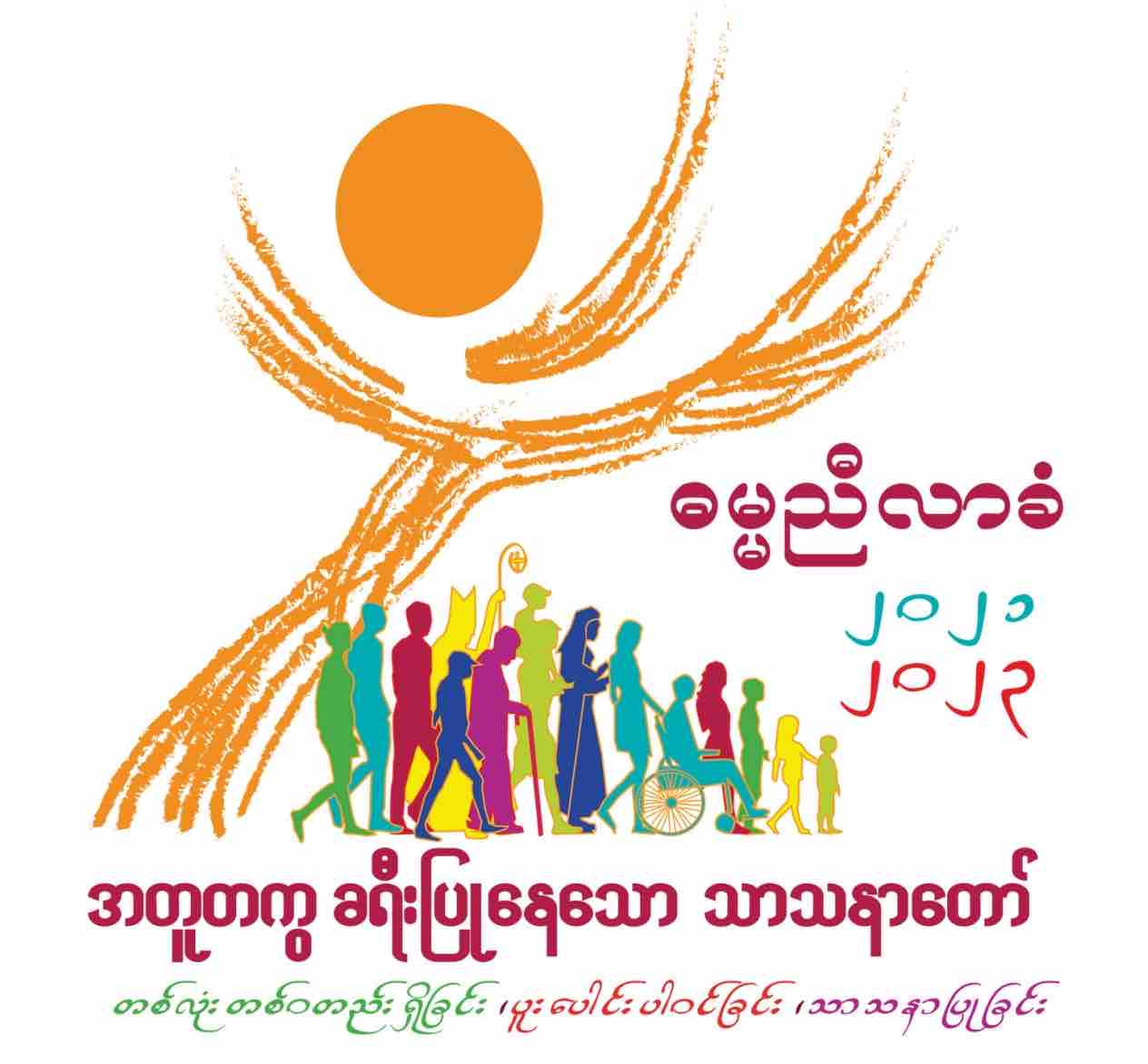

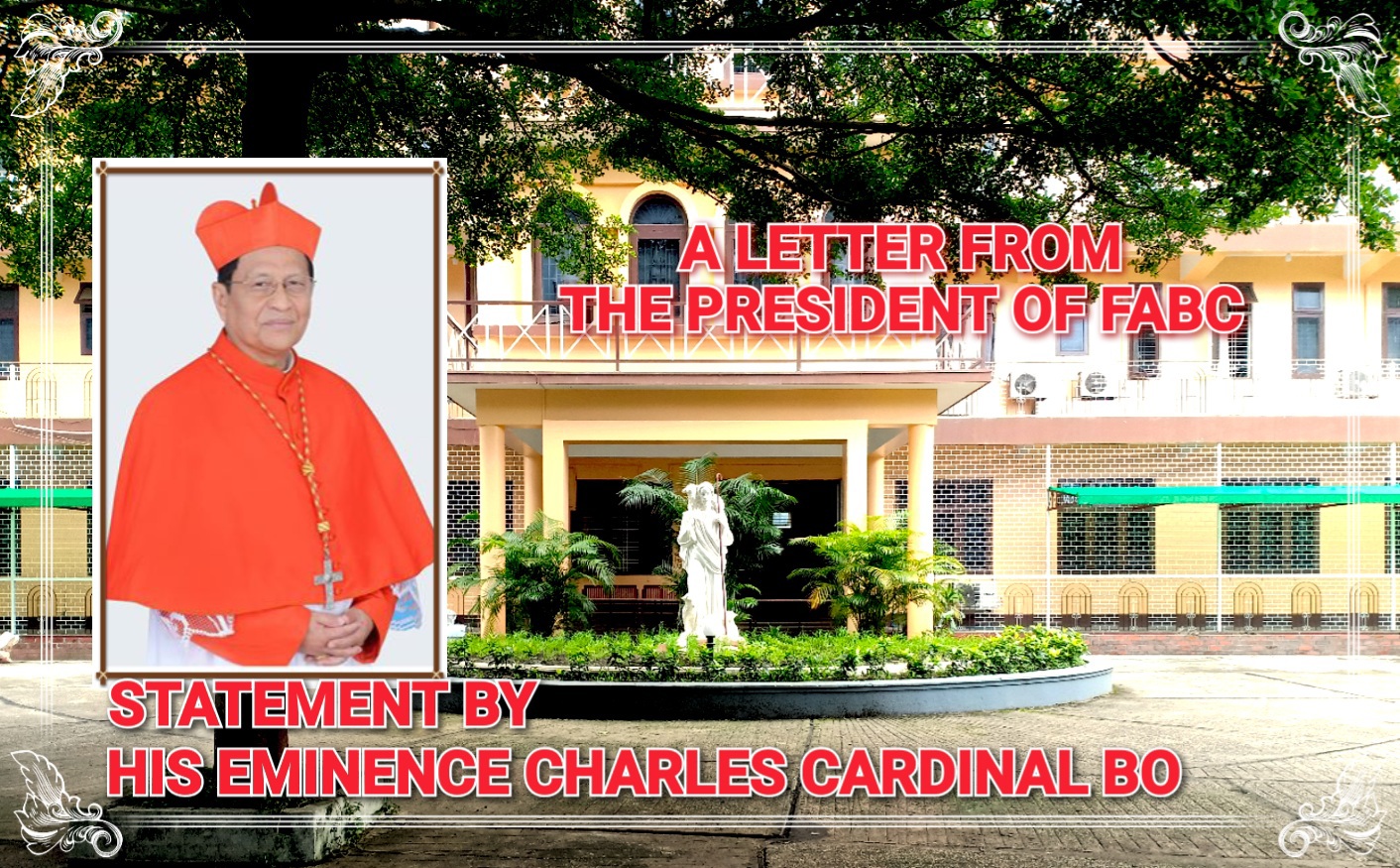


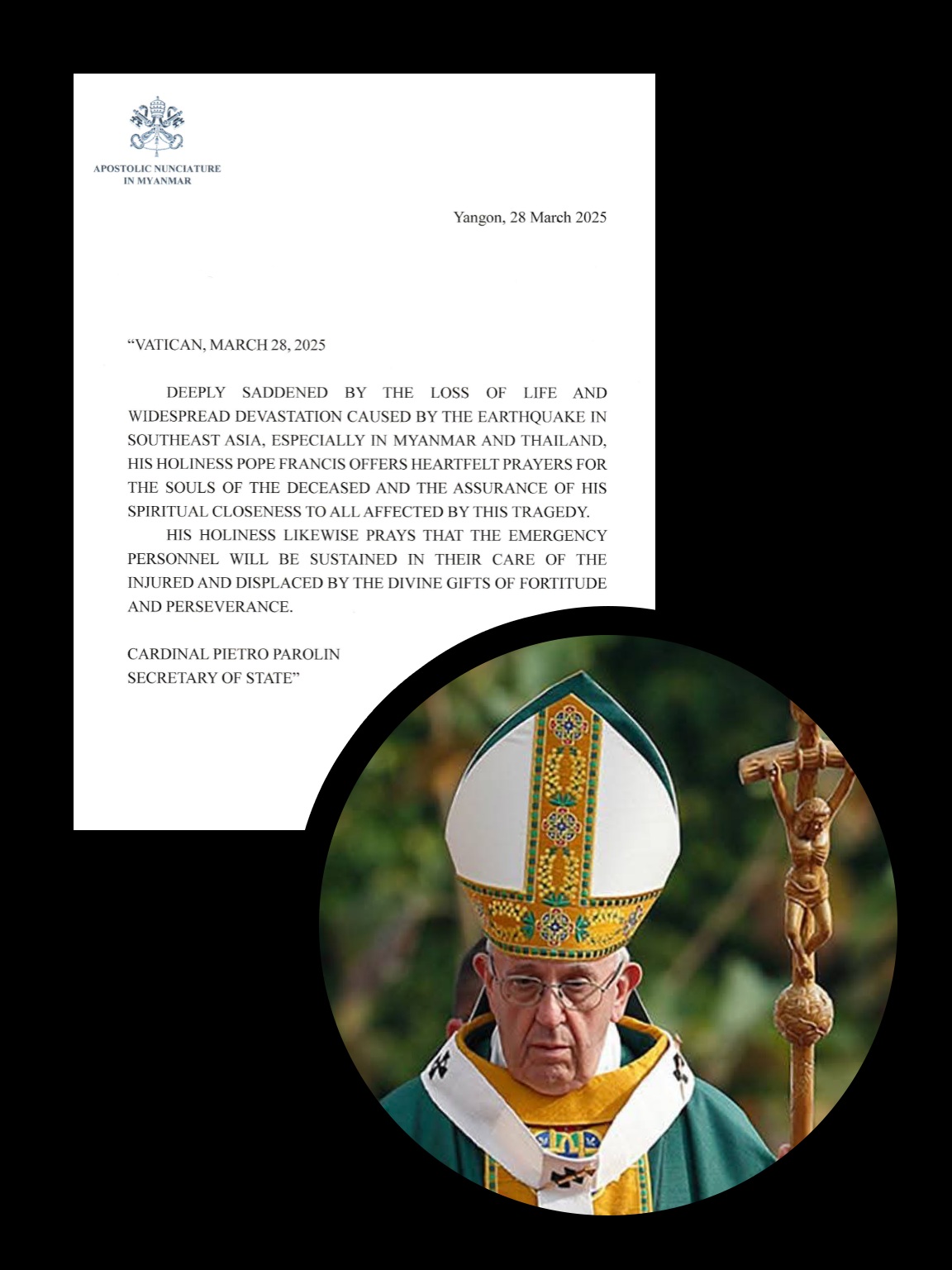
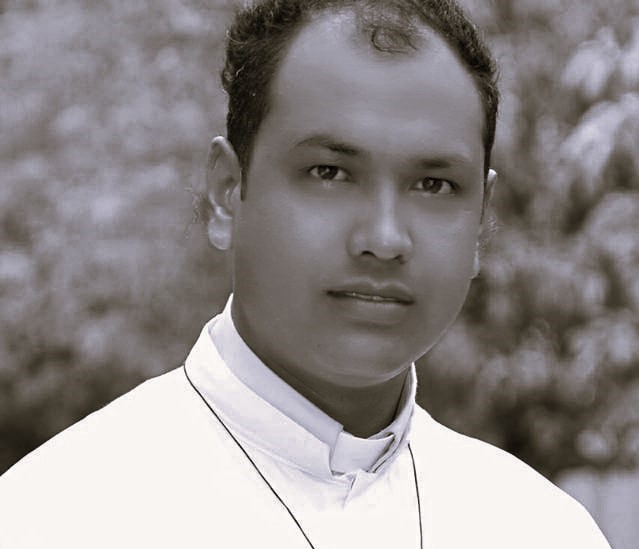
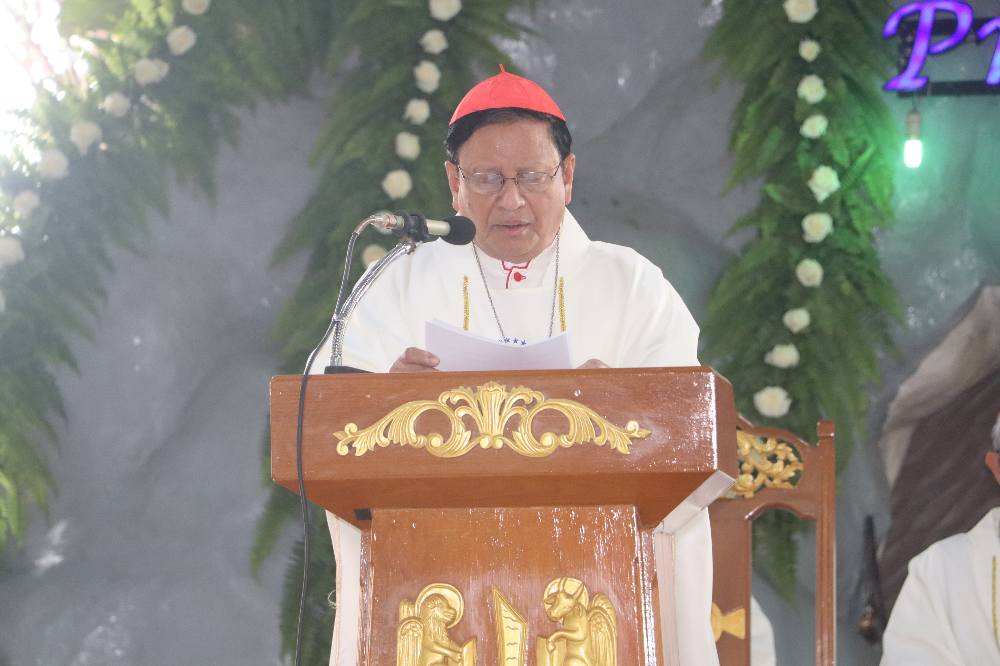
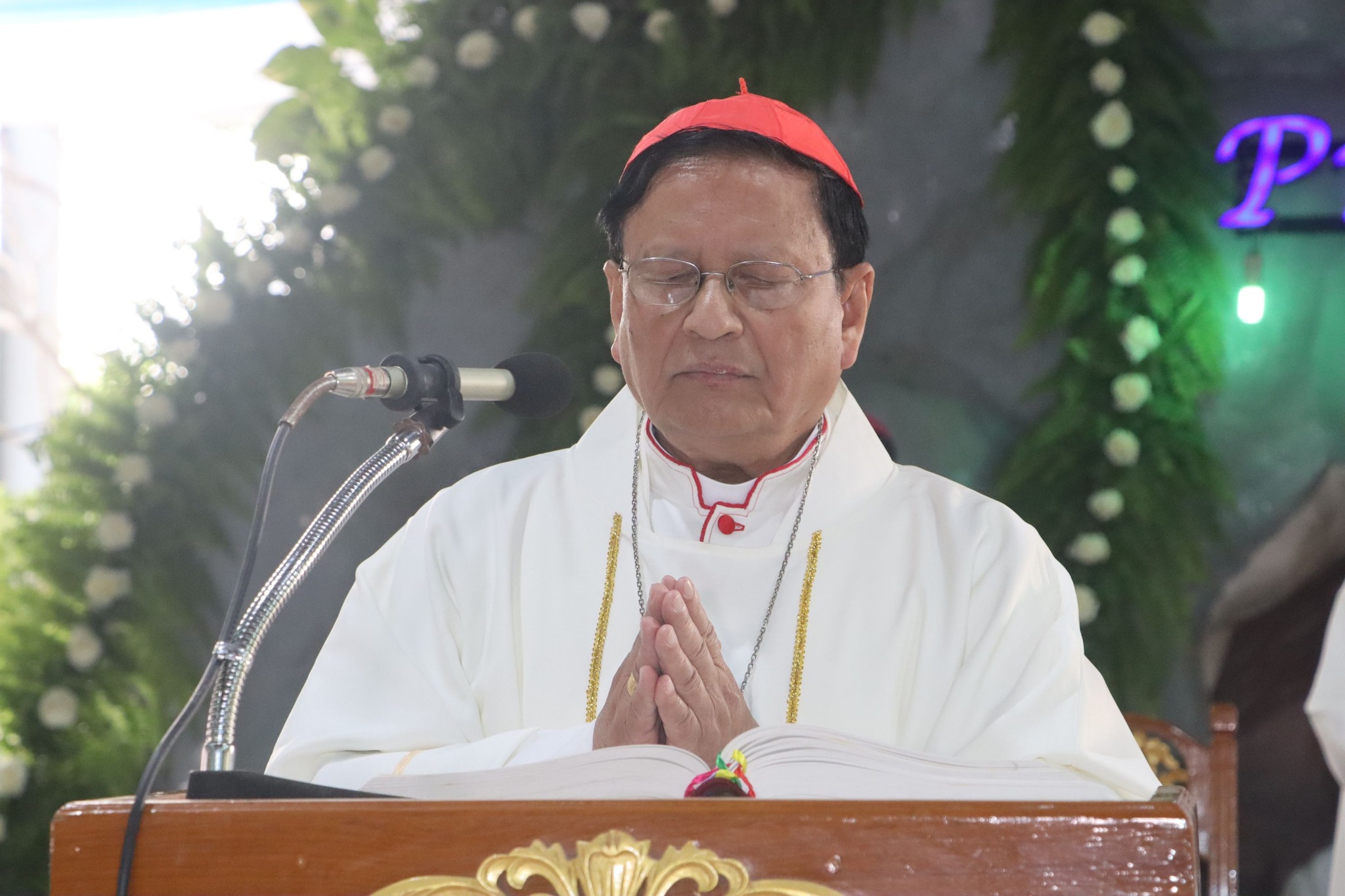
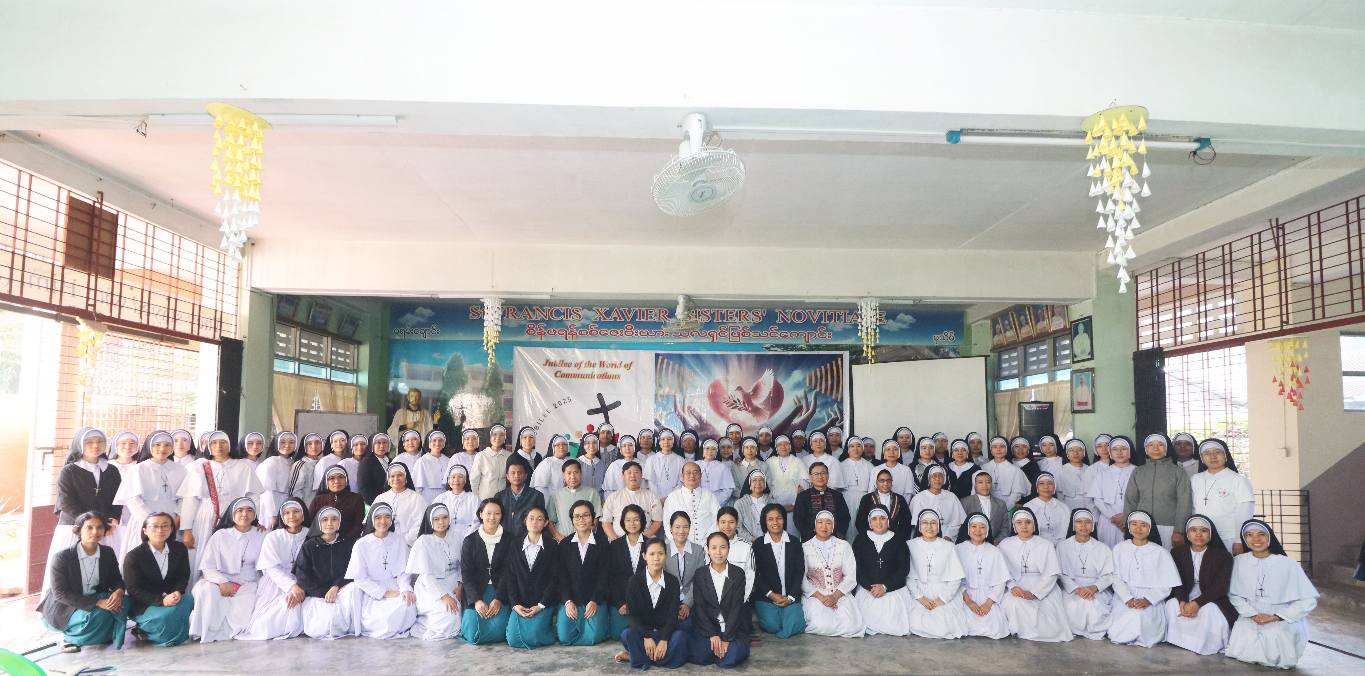
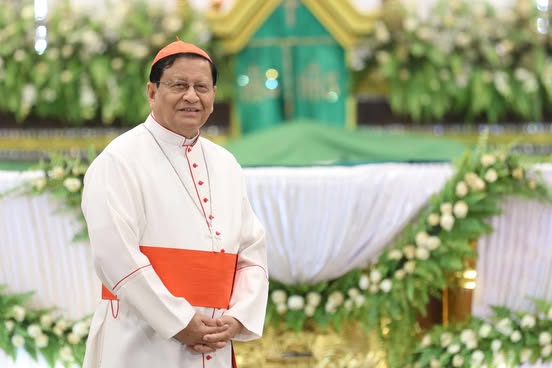
.jpg)
